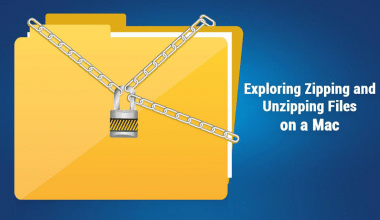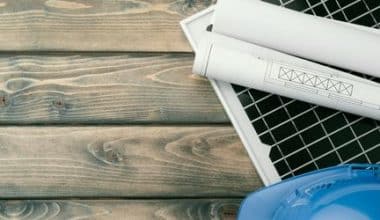Sending a thank-you email or letter after a job interview is appropriate and beneficial for your job search. You have the chance to highlight your qualifications for the job, express your interest in it, and, if necessary, address any issues that were raised during the interview in your follow-up note. After a job interview, it can be anxious to send a follow-up email. But it is also crucial to take this action to show the hiring manager that you are interested and professional.
It is a good idea to get in touch with the hiring manager after spending time and effort on a job interview. A well-written thank you note could mean the difference between receiving an offer of employment and not hearing anything at all. In this template, we will go over how to write an email of gratitude following an interview and how to stay on the hiring manager’s mind.
Interview Follow Up Email
Following up after an interview gives you a second chance to make a good first impression. You cannot hurriedly type a few sentences and hope for the best when writing a strong follow-up letter or email. An effective thank-you note goes beyond merely expressing gratitude. It supports your application and provides you with an additional opportunity to wow the hiring manager.
Sending up to two emails after an interview is customary. You should send your recruiters a thank-you email as soon as possible after you meet with them—no later than 48 hours afterward. A brief note of gratitude is not just courteous; it also demonstrates your appreciation for the time and effort they took to meet you. Ideally, you should call within 24 hours of the interview, but if possible, call the day of or the day after.
The Importance of Following Up After Interviews
Sending a flawless follow-up email after the interview demonstrates your interest in the job and willingness to go above and beyond. Additionally, it provides an opportunity for you to address any queries or issues that the interviewer might have had but was unable to address directly.
Additionally, employers typically appreciate follow-up emails from job interviews because they demonstrate the applicant’s attention to detail and initiative. The caliber of thank-you notes is occasionally taken into account by hiring managers when making decisions about candidates. Sending one can therefore make the difference between two equally qualified candidates. In either case, there is nothing to lose.
After Interview Follow-Up Email Example
Happy to learn more about [Company Name] in the subject line
Dear [Name of Hiring Manager],
I appreciate you taking the time to speak with me about [the position you are applying for] with [Company Name] this morning. The opportunity to learn more about your [innovative strategy, upcoming difficulties, core principles, and market insights] was a pleasure.
The information you gave me about the position persuaded me that it is a job I would enjoy and one to which I could contribute significantly with my abilities and experience [refer to your area of expertise and how it can benefit your employer].
Regarding [detail of the interview topic] you mentioned, I was also considering what you said. In my previous position as [your current or most recent position], I discovered that [data-supported justification of how you would approach the problem].
If you need any additional information, do not hesitate to get in touch with me. I anticipate our call the following week as we agreed.
Thank you once again, [Hiring Manager’s Name].
Best regards,
[Your sign-off]
Follow up after an interview
Example 2
Subject: Thank you for your time
Hi [interviewer’s name],
For meeting with me yesterday, I sincerely appreciate your time. I enjoyed learning more about the responsibilities of the [position] and understanding the projects the team is working on.
I am certain that the team would benefit from having me on it because of my background and education. I am thrilled about the prospect of joining [company] and making a positive difference in its development.
Again, I want to thank you for your consideration and time. I’m anticipating hearing from you soon.
Best,
[Your name]2 Weeks After the Interview Follow-Up Email
After an interview, your main focus in a second follow-up email should probably be the progress of your application. After two weeks have passed since the interview, is when you should send a follow-up email. However, if your recruiters indicated in their previous email or during the interview that they would contact you by a specific deadline, you can email them a day or two after that time even if it occurs before the two-week mark. You look better by sending a second follow-up email in several ways. You come across as:
Organizational and driven: Sending out emails on time demonstrates that you are in control of your schedule. You created a plan and carried it out, which is a strong skill in any role. Because you are so driven to succeed, you are prepared to take the lead in hiring. If you are this enthusiastic now, just wait until you are an employee.
Casting a wide net when looking for a new job is common practice. Employers are aware that you will not pursue every position for which you applied. They recognize your greater concern for them than the others when you do send a note.
Benefits of Follow Up Email
It calms your nerves. You will feel more in control of the hiring process if you send follow-up emails, which will help you relax while you wait for a response.
You will get the chance to impress. Then you can mention potential projects or other ideas for what you could do with the position in your note. This is an opportunity for you to show that you have thought about the company and why you would be a great fit.
It may advance the situation or offer you a resolution. Your note might serve as the catalyst the recruiter needs to move things along more quickly. As a result, you might get a job offer sooner, get a chance to interview again or get a flat no. You will have closure in any case.
The hiring manager will remember you. The hiring manager will be reminded of their impression of you when they see your name in their inbox. If you had a positive impression, your note would ensure that they would not mistake you for someone else or forget about you entirely.
Steps In A Follow-Up Email Two Weeks After an Interview
You might feel disappointed if two weeks have passed following an interview and you have not heard anything. If they had any intentions of hiring you, they would have contacted you by now, no doubt. Here’s how to send a follow-up email to find out how you did following the interview.
#1. Make Sure You Have Permission to Contact Them
Due to the volume of applications the company receives or the hiring manager’s workload, some employers expressly request job applicants not to get in touch with them following an interview. It is best to comply with their request if this applies to you. In addition, even if it takes longer than two weeks, do not get in touch with them if they promised to do so by a specific date. You do not want to come across as impatient because they are more familiar with their internal workings than you are.
#2. Create an Appropriate Subject Line
The subject line of your email will catch the attention of your hiring manager or coordinator. Make sure the subject is concise and accurately sums up your message’s purpose to avoid getting lost in their inbox.
#3. Keep Proper Email Protocol in Mind
Use good grammar and formatting, and make sure to proofread everything. Additionally, you will require a formal greeting, such as “Hello, [hiring manager’s name].” Also, do not forget to include a signature at the end of every email that includes your contact information and any pertinent links, such as those to your LinkedIn profile or portfolio.
#4. Start with Some Background
Mention the job you applied for as soon as possible because your interviewer might be skipping through their inbox. They will find it simpler to recall all the details of your exchange if you do this. You are welcome to add more details, such as the day and time you finished the interview, as well as a memorable moment involving the manager, such as a shared interest or connection. Send personalized emails to each panelist individually if the interview was not one-on-one.
#5. Ask Your Question
There is a reason you emailed them in the first place. Inquire about the position’s status now that it is time to get to the point. You could ask this question in a few different ways.
- Have you chosen a new hire?
- Do you still have me in mind for the position?
- What steps will you take to reach your decision?
#6. Display Your Enthusiasm
Reiterate your interest in the position once you have inquired about the hiring procedure. Additionally, this is a great place to express any ideas or thoughts that would be beneficial to your work.
#7. Review the Text for Accuracy Once More
Writing mistakes could seriously hurt your chances of getting the job. There is no reason to think you will have it later if your follow-up note demonstrates a lack of attention to detail.
Tips for Writing a Follow-Up Email or Letter
Try sending an email Send an email with the subject line “thank you” and your name if you need to immediately follow up. Whenever you decide to send an email after a job interview, make sure to do so within 24 hours.
#1. Express Your Enthusiasm
Emphasize how excited you are about the job. This is your last opportunity to let the employer know that you think you would be a good fit for the job with their company.
#2. Fill In Any Missing Information
This is a good place to add any relevant experience or other important information that you might have forgotten to mention. If you believe you did not have a good first impression in the interview, you may want to clarify anything.
#3. Review and Edit
Whether you send the note via email or regular mail, make sure to read it thoroughly before sending it. A professional, well-written letter is essential if you still want to leave a lasting impression, as mistakes like misspelled names or typos will work against you. If you decide to send an email, test the formatting first by sending it to yourself.
#4. Be Straightforward
When sending an email, always assume that the recipient is busy. That is most likely the justification for their initial decision not to get in touch with you. Therefore, communicate clearly.
Understand your goals for contacting the person before you begin writing, and include them in the email body. People are more likely to read and respond to shorter emails because they are generally easier to read and understand, and they also value them more because they are direct.
#5. Be Honest
When you are focused on crafting the perfect email, it is easy to lose your voice. Attempt to stay true to who you are, what you have to offer, and what you are looking for throughout your job search. Be sincere in all of your interactions.
Being honest when applying for jobs can increase your chances of getting a position where you feel valued and empowered. The interview process is a great chance to find out whether your communication styles are a good fit since the people you are reaching out to are probably also trying to create a welcoming workplace.
#6. Stay Close to Your Points of Contact
Typically, your primary point of contact for the duration of the interview process will be the person who schedules your interviews and keeps you informed of the progress of your application.
Contact them if you need to follow up with someone other than your point of contact via email. Unless they specifically provided it to you during the interview or in an email introduction. Find out if it is acceptable to pass along a note from you or your interviewer’s contact information. By doing this, you can make sure that your outreach takes into account the limitations set by the business.
#7. Be Aware of their Schedule
Generally speaking, consider your point of contact’s timeline when you follow up with them. Give them the full two weeks plus an extra day or two to account for delays on their end if they told you it would take them two weeks before they would be prepared for the next steps.
There are times when you might think about reaching out before their deadline. One example of when this would be appropriate is if you receive a job offer from another company. Whether you are inclined to accept the other offer or still want to give priority to this opportunity, reaching out to your point of contact to let them know about the change in your timeline could help both of you make the best decision going forward.
What To Say in a Follow-Up Interview Email?
Describe the following in your follow-up email:
- Gratitude for the interviewer’s time
- Mentioning the job title and the interview date will help you clarify that this email is a follow-up.
- Describe your interest in the job and your unique qualifications.
- Ask any last-minute questions you may have, and mention any pertinent knowledge or abilities you were unable to discuss in the interview.
- Assure the interviewer that you can respond to any inquiries they may have about your credentials.
- I hope to hear from you in the future, and then sign off.
How Soon Should You Send a Follow-Up Email After an Interview?
Sending your follow-up email within 24 to 48 hours of the interview is a good way to show that you are interested in the position and excited about the business. You may also send a second email after the deadline if the company does not reply to your first one.
How Do You Follow Up Emails to Check the Status After an Interview?
After the interview, but not immediately after you leave the room, you should send a follow-up email within 24 hours. This demonstrates your organization and desire to advance in the hiring process.
How Do You Politely Ask for an Interview Result?
Subject: Following Up on Our Interview
Hello [Name],
I wanted to check in with you to see if you had decided on the open position. I valued our discussion and am eager to join your team if it is possible.
I would be very grateful if you could explain why I have not received a response as of yet. I am sure I would make a strong applicant for the position, and I hope to hear from you soon.
Thank you,
[Your Name]What are 2 examples of how you can follow up after an interview?
To check status
Hi Jones,
I am checking in to see if there have been any developments regarding my application for the position of a customer service representative. You mentioned the following step might be a call with the managing director during our interview on April 5th, which I had on that day. I would love to continue the discussion and schedule something for the upcoming weeks.
Looking forward to your thoughts!
Thanks so much,
Peter
Is it OK to Follow Up on a Job Interview?
Sending a thank-you email to the interviewer afterward is acceptable and appropriate. However, do not bombard them with messages; it is acceptable to follow up after a job interview no more than three times, spread out over a few weeks. You can send a post-interview thank-you email to the company and state that you are still interested in working there should a future opportunity arise if you learn that you did not get the job.
Conclusion
Immediately following the interview is the ideal time to send your letter or email. Inform the interviewer of your enthusiasm for the position and make any omissions from your answers during the interview clear. Make sure there are no grammatical, spelling, or formatting errors in your note. You have to tread carefully here. But if you want to stand out from the competition, you must follow up with an email after two weeks regarding the interview.
The ability to send follow-up emails is crucial for getting a job. To avoid coming across as ungrateful, send a thank-you email within one to two business days of the interview. And two weeks later, assuming you were not told otherwise, you should send a second one to stay on your employer’s mind.
It is critical to write a stellar interview follow-up letter because it can both increase and decrease your chances of getting the job. Make sure your communication is courteous, accurate, and concise. Hopefully, your potential employer will choose to hire you and put an end to your job search.
Related Articles
- FOLLOW-UP EMAIL AFTER INTERVIEW: Examples, Guide & One for No Response
- EMAIL MANAGEMENT: Meaning, Software, Strategies & Skills
- FOLLOW UP EMAIL: Complete Guide & How to Send It With No Response
- VIDEO INTERVIEW TIPS: What Are the Tips & Checklist to Do Well?






